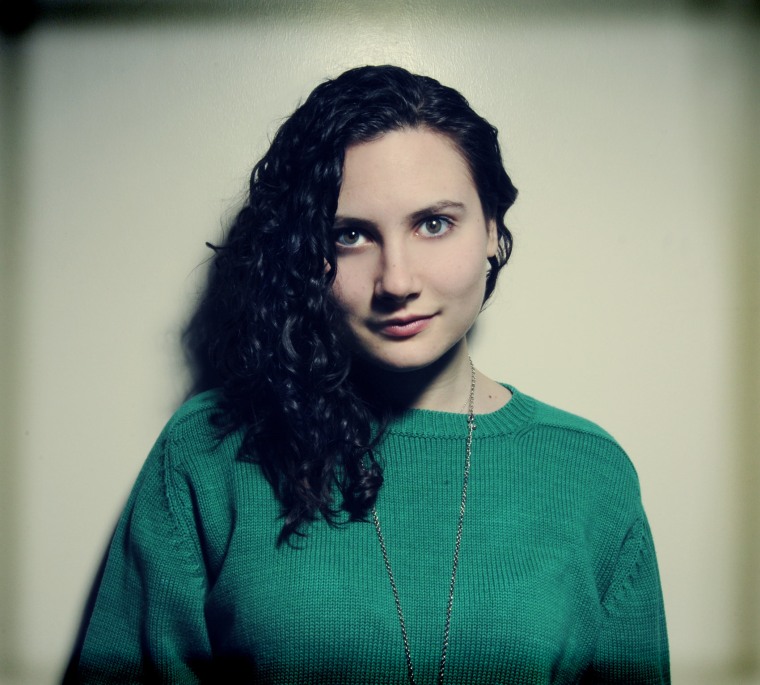This week's "Foot Soldiers" featured 19-year-old Grace Brown, a freshman at the School of Visual Arts in New York City. Inspired by a friend's story and her skill with a camera, Grace started Project Unbreakable, a Tumblr designed to help give power back to survivors of sexual assault through the words of their attackers. I'll let her explain -- both in my interview with her, and in the short film embedded below.
Can you tell me specifically what prompted you to start Project Unbreakable?
Grace Brown: After hearing so many stories in the past couple years, I was out with a friend in October and she decided to tell me that she had once been abused. And it was the last straw for me. I woke up the next morning and I had the idea for the project in my head.
Why did you call it "Project Unbreakable"?
I originally wanted to do something regarding strength. I was talking to my sister back and forth, and she came up with "unshakeable." I went into the thesaurus, "unbreakable" came up, and I just decided to go with "unbreakable."
So you create the Tumblr, and you begin. Is what is has become now what you had in mind from the beginning?
GB: I didn't plan on accepting anyone wanting to submit; I planned on it just being a photography project. But then, a couple weeks in, people were asking to submit their own images because they live too far away. I said, "Absolutely."
How is the photography (on Project Unbreakable) particularly helpful in helping survivors?
In the beginning, I didn't even realize that it would be healing. Originally, I just wanted to show the numbers and be able to say, "Look at how many people this has affected." I realized later on that it was really powerful for people to take back these words, and I think in seeing them in a photograph, it solidifies it. Someone in the press described as (them) having the last word.
Do you feel that's accurate?
GB: Yeah.
Why, then, use the words of the attackers? Why not have it be sign with a giant "(expletive) you!" on it? What has been the feedback from your participants on this?
GB: I don't think anger is the key in healing. As for the feedback, I've gotten really positive feedback from people who have participated. I think they realize that it's important for them to let it go. When a survivor tells their story, they often don't say what was spoken to them, and it sits there like a stone in your stomach. They need to let that go.
What do you have in mind for the future of the site? How do you see it evolving?
GB: I hope to either become an organization, or be under another organization's umbrella. And I'd like to publish a book as well.
Are there any photos that you've rejected?
GB: No; as long as they fit the guidelines as much as possible, that's fine. I don't accept stories, there's another website (for that). Anyone who sends a poem or a story, I send them over to Survivor Stories.
Without getting into the details of your friend's specific situation, how did she react after you photographed her?
Project Unbreakable from Nino Gallego on Vimeo.
GB: You know, I asked her, and she said it was really interesting for her. She was the first one I photographed, which was incredibly brave of her. But from being her friend, she seems to be a little more open about it, and talks about it with me. I think it's helped her.
I also noticed the number of male survivors on the site. Have you had any reaction from them, other than the photos which they send?
GB: I'd say it's pretty much the same (response I get from women). I do get less men involved, but in the beginning, I had no men. They're starting to come forward, and they're getting braver, and that's really incredible to me that more and more men are sending in their photos and asking to be photographed.
I was struck by Ashley Ray's quote in the Sydney Morning Herald article about Project Unbreakable, that she had a panic attack the first time she saw it, but that the picture is now a "piece of her that is no longer hiding in shame and guilt," "a beautiful scar." Has anyone ever had regrets after submitting a photo to you?
GB: I had one who got a little bit nervous. I never photographed her; she submitted (a photo). For the most part, people are OK with it.
What obstacles are you encountering -- pressure from other groups, etc.?
GB: I've gotten really good feedback. Of course, there are the negative reviews, (of which) there have only been a handful. Someone said that it was a "shallow attempt to heal wounds." But I think, for the most part, it's been very positive.
To counter that, I would think that you could argue that you could say that about any form of art, that it doesn't physically heal. What is the argument for art as a therapeutic device, particularly when it comes to sexual assault?
GB: In general, it's great. It's just another way to tell their story -- and it's getting people to talk about it, even people who weren't survivors. Sometimes talking is really difficult for people. Sometimes writing it down is easier.
Ed. note: you can donate to Project Unbreakable here.
